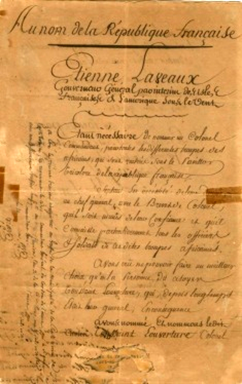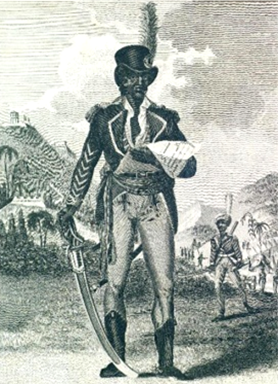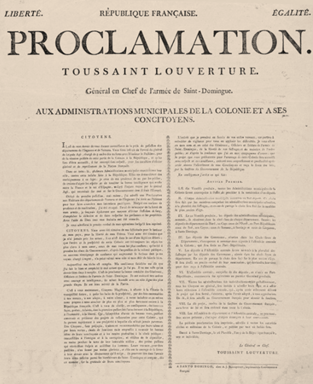 "Toussaint in Power" by Laurent Dubois, Ph.D.
"Toussaint in Power" by Laurent Dubois, Ph.D.
Dubois is Professor of French Studies and History at Duke University. He has written numerous works, such as A Colony of Citizens: Revolution and Slave Emancipation in the French Caribbean (2006) and Avengers of the New World (2004).
In the middle of 1794, when he learned that the National Convention in Paris had abolished slavery throughout the French empire, Toussaint Louverture made a crucial decision: he would defect from the side of the Spanish, and fight instead for the French Republic. He brought with him a significant body of troops, and quickly routed his former Spanish allies in several strategic locations in the North of Saint-Domingue.
Recognizing his central political and military importance, General Etienne Laveaux—the de facto French Representative in the colony—supported Louverture and named him General-in-Chief and then Governor-General of Saint-Domingue. He organized the French military operation on the island, fighting two fronts the English and the Spanish–and successfully shoring up the Republic’s position and then slowly reversing the gains made by the two foreign powers.
But Louverture inherited a set of massive political and economic challenges, the most pressing and intractable of which was the question of how to manage the transition from slave to free labor. Building on the labor codes decreed in 1793 by Polverel and Sonthonax, Louverture further institutionalized a system in which former slaves were required to remain on plantations as agricultural workers, or cultivateurs, to be paid for their work by receiving (as a group) a quarter of what was produced on their plantations. He did not really consider any alternative to the maintenance of plantation production, convinced that given the necessity of supporting the ongoing military struggle for emancipation and the importance of proving to the broader world that colonies could be profitable without slavery, the only way to preserve liberty in Saint-Domingue was to circumscribe its content. Many formerly enslaved people, however, had a very different idea of what freedom should mean, and they both quietly circumvented and sometimes openly contested Louverture’s plantation policies.


